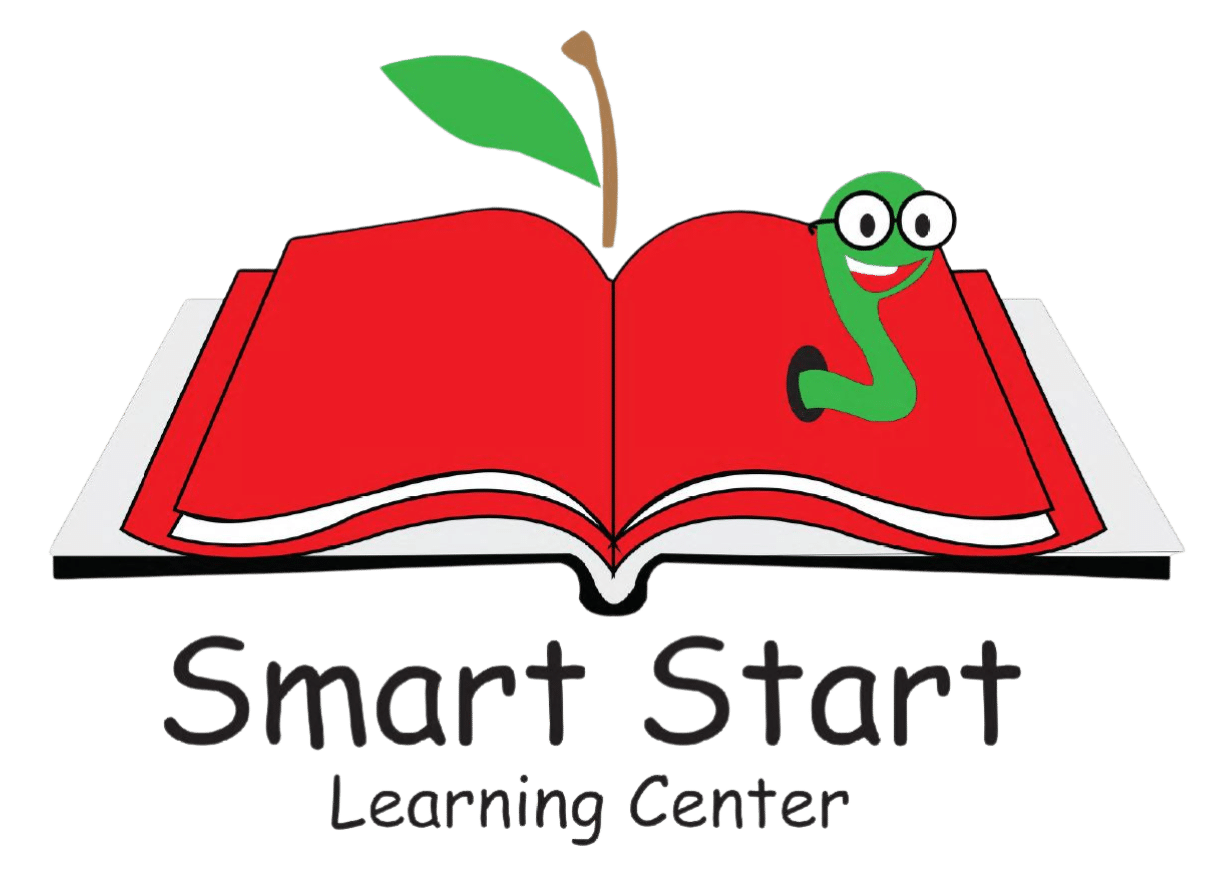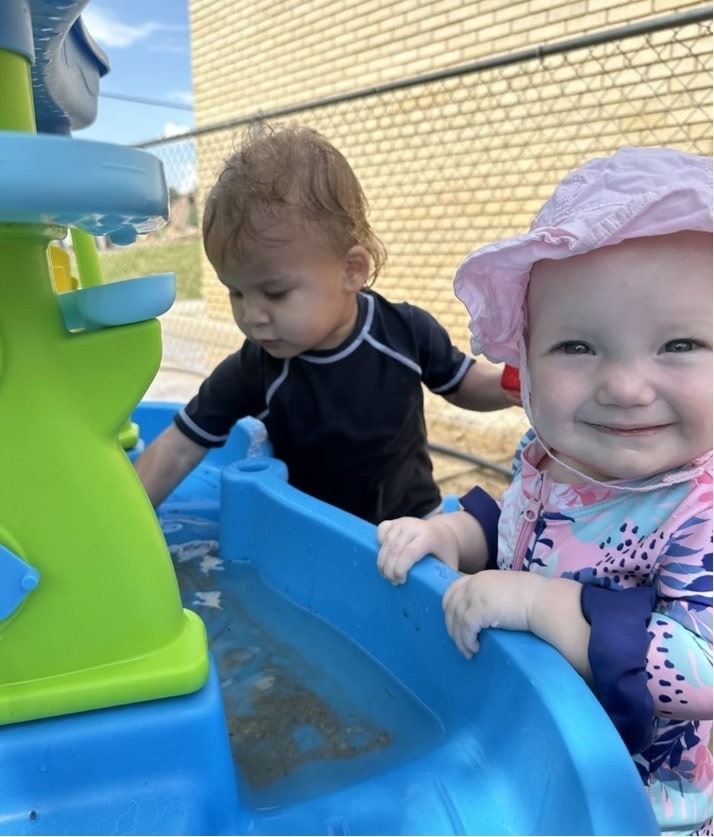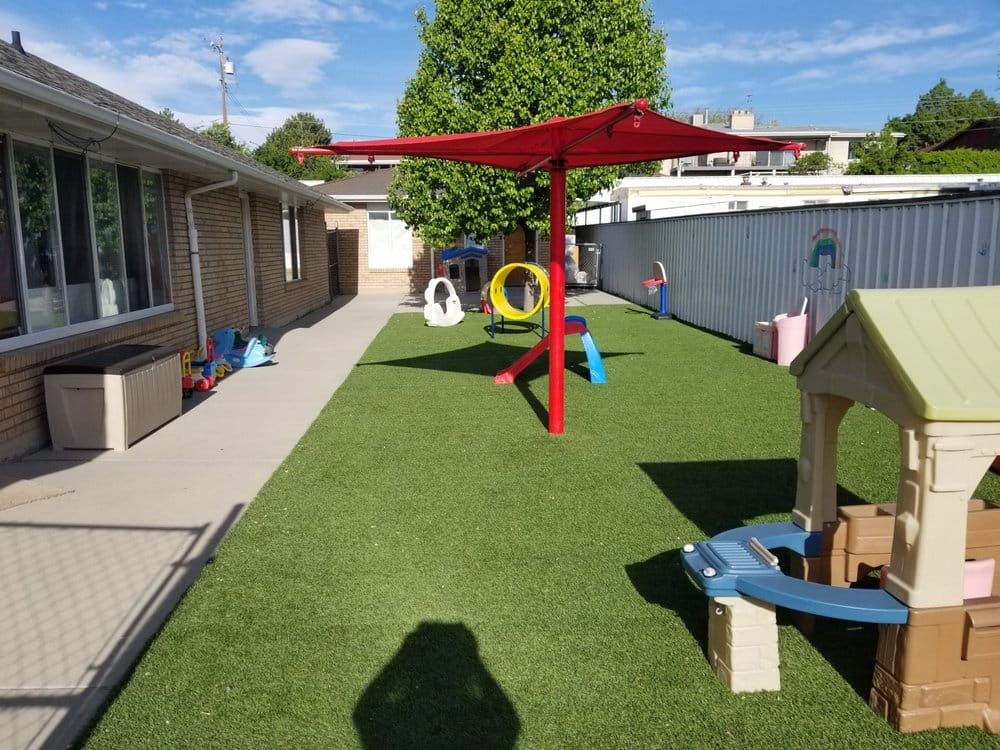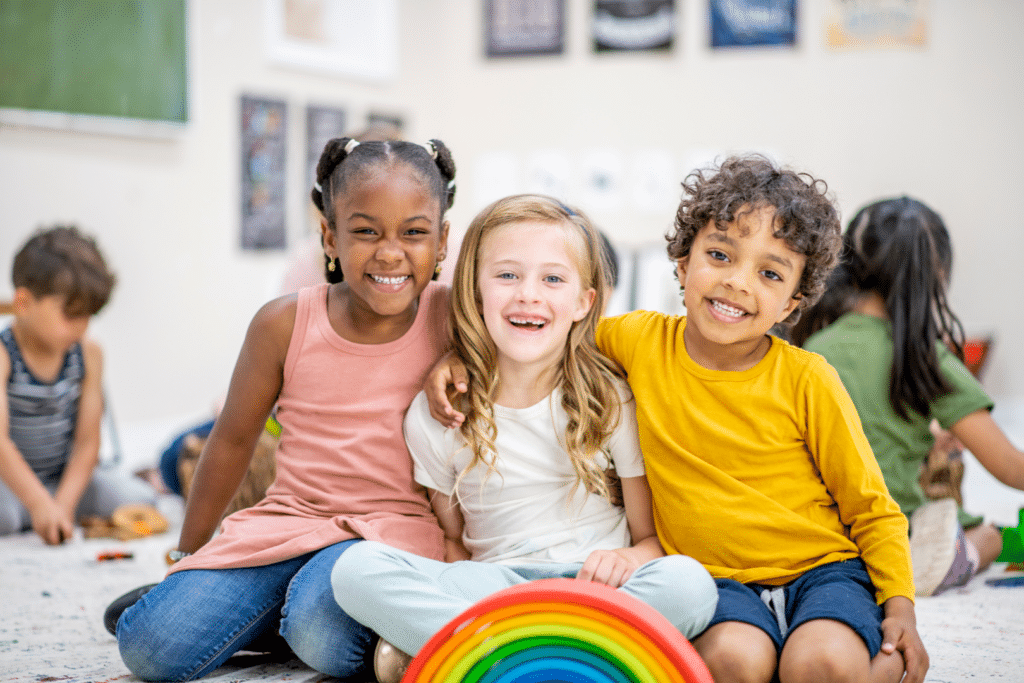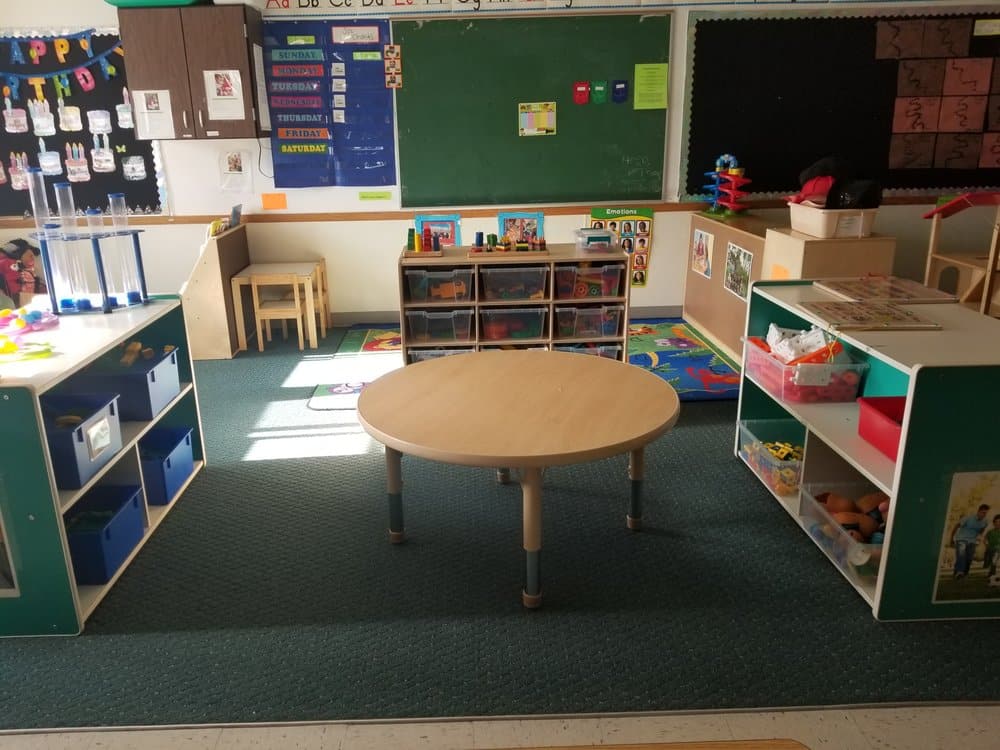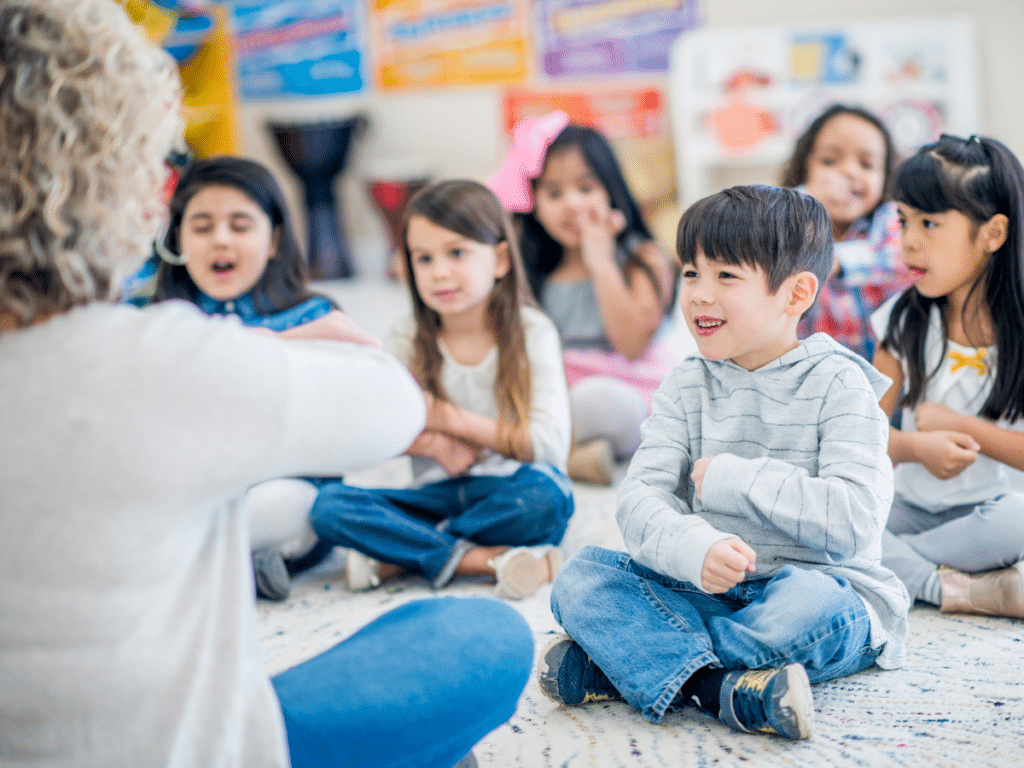Our Curriculum
Nurturing Development at Every Stage
At Smart Start Learning Center, we understand that each child is unique and develops at their own pace. Our curriculum is thoughtfully designed to cater to the individual needs of children at different stages of their early years.
In the Infant Room, our youngest learners thrive in an environment where they follow their own schedules. Through a monthly lesson plan, we introduce sensory activities and interactive experiences to lay the foundation for future learning.
Toddlers continue their learning journey with an emphasis on individual schedules and a monthly lesson plan. Our Toddler Room encourages curiosity and early learning through engaging activities designed to stimulate their growing minds.
The 2’s Room marks a transition as toddlers begin to experience a more structured environment while fostering independence. This stage encourages the development of foundational skills in a setting that supports their emerging abilities.
Our Early Preschool class for 3-year-olds follows a curriculum that includes the Creative Curriculum, Second Steps, and Conscious Discipline. This approach nurtures social-emotional growth, and physical development, and lays the foundation for academic skills.
Building upon the curriculum of the 3’s class, our 4-year-olds in the Preschool class dive deeper into the material. This stage is characterized by a more in-depth exploration of the subjects covered in Early Preschool, preparing them for advanced learning.
The Kinder class, designed for 5-year-olds, extends the exploration of the Creative Curriculum, Second Steps, and Conscious Discipline. Here, children engage in a more advanced curriculum, focusing on developing skills that will ease their transition to formal schooling.
Our Graders class is a dynamic blend of academic reinforcement and balanced activities. Children in this stage participate in structured homework after school, followed by ample free play. Additionally, our summer camp offers an enriching environment for continued learning and growth.
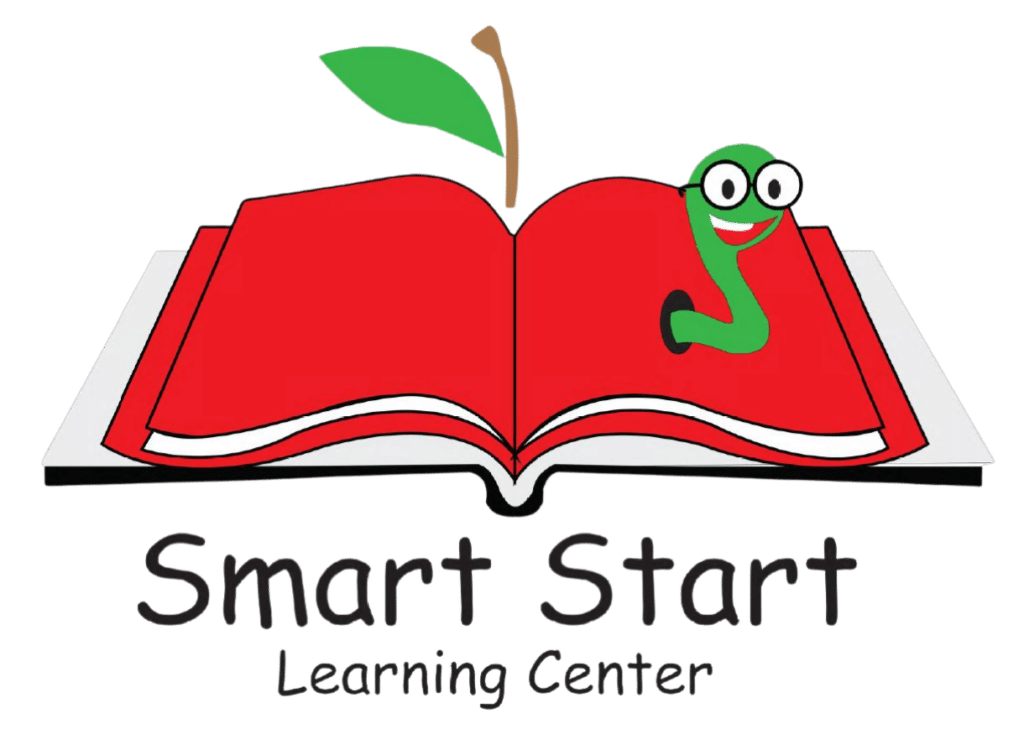
Creative Curriculum Objectives For Development and Learning
At Smart Start Learning Center, we are dedicated to providing a customized learning journey that recognizes and supports the unique needs of each child at every developmental stage. Contact us to learn more about our engaging programs and how we nurture learners today to become leaders tomorrow.
- Regulates own emotions and behaviors
- Manages feelings
- Follows limits and expectations
- Takes care of own needs appropriately
- Establishes and sustains positive relationships
- Forms relationships with adults
- Responds to emotional cues
- Interacts with peers
- Makes friends
- Participates cooperatively and constructively in group situations
- Balances needs and rights of self and others
- Solves social problems Physical
- Demonstrates traveling skills
- Demonstrates balancing skills
- Demonstrates gross-motor manipulative skills
- Demonstrates fine-motor strength and coordination
- Uses fingers and hands
- Uses writing and drawing tools Language
- Listens to and understands increasingly complex language
- Comprehends language
- Follows directions
- Uses language to express thoughts and needs
- Uses an expanding expressive vocabulary
- Speaks clearly
- Uses conventional grammar
- Tells about another time or place
- Uses appropriate conversational and other communication skills
- Engages in conversations
- Uses social rules of language Cognitive
- Demonstrates positive approaches to learning
- Attends and engages
- Persists
- Solves problems
- Shows curiosity and motivation
- Shows flexibility and inventiveness in thinking
- Remembers and connects experiences
- Recognizes and recalls
- Makes connections
- Uses classification skills
- Uses symbols and images to represent something not present
- Thinks symbolically
- Engages in sociodramatic play
- Demonstrates phonological awareness
- Notices and discriminates rhyme
- Notices and discriminates alliteration
- Notices and discriminates smaller and smaller units of sound
- Demonstrates knowledge of the alphabet
- Identifies and names letters
- Uses letter–sound knowledge
- Demonstrates knowledge of print and its uses
- Uses and appreciates books
- Uses print concepts
- Comprehends and responds to books and other texts
- Interacts during read-a-louds and book conversations
- Uses emergent reading skills
- Retells stories
- Demonstrates emergent writing skills
- Writes name
- Writes to convey meaning
- Uses number concepts and operations
- Counts
- Quantifies
- Connects numerals with their quantities
- Explores and describes spatial relationships and shapes
- Understands spatial relationships
- Understands shapes
- Compares and measures
- Demonstrates knowledge of patterns Science and Technology
- Uses scientific inquiry skills
- Uses scientific inquiry skills
- Demonstrates knowledge of the characteristics of living things
- Demonstrates knowledge of the physical properties of objects and materials
- Demonstrates knowledge of Earth’s environment
- Uses tools and other technology to perform tasks Social Studies
- Demonstrates knowledge about self
- Shows basic understanding of people and how they live
- Explores change related to familiar people or places
- Demonstrates simple geographic knowledge
- Explores the visual arts
- Explores musical concepts and expression
- Explores dance and movement concepts
- Explores drama through actions and language English Language Acquisition
- Demonstrates progress in listening to and understanding
- Demonstrates progress in speaking English
